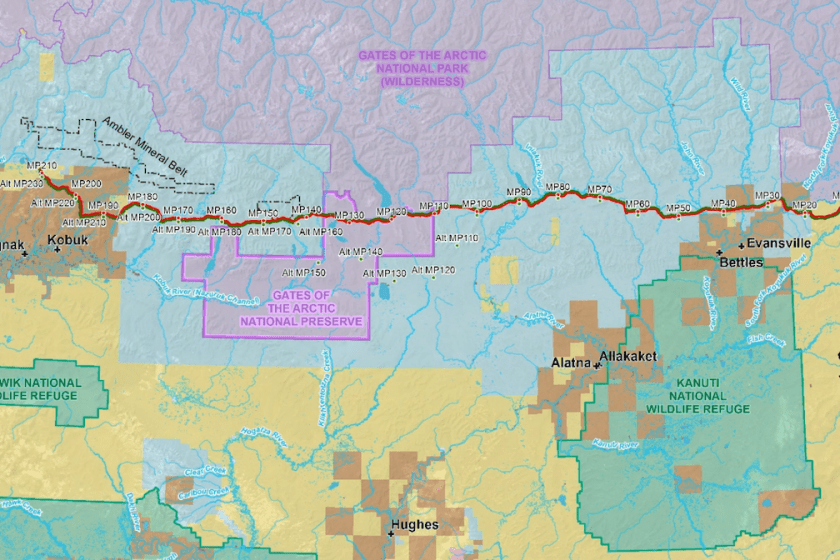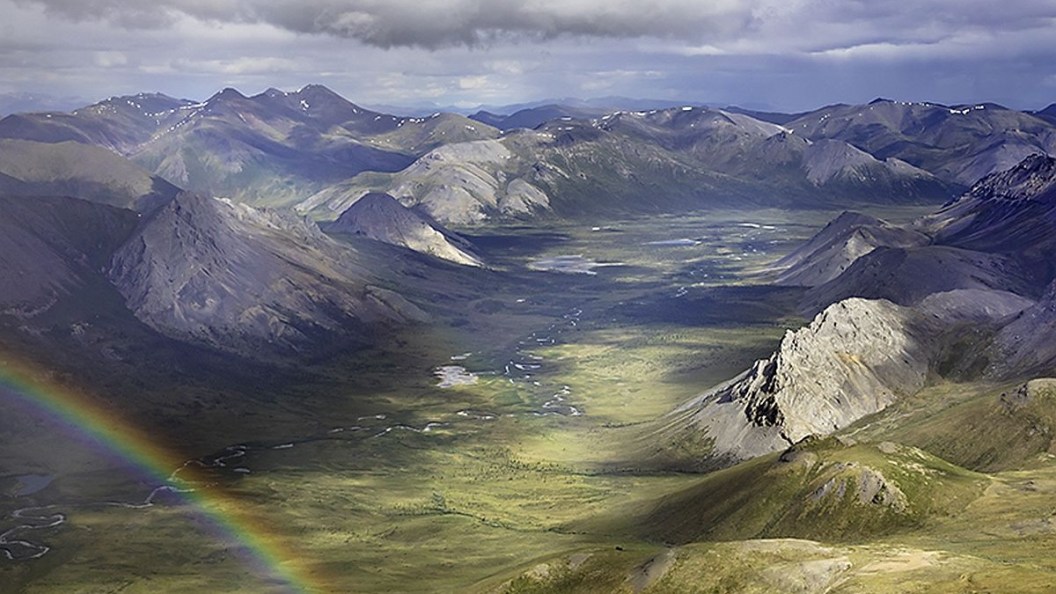On Friday, the Biden administration denied the Ambler Road project, which would have created a 211-mile private road through the wilderness of north-central Alaska in support of speculative mining operations.
Although the previous Trump administration initially green-lighted the project after it was proposed, the final decision followed a Bureau of Land Management environmental report saying it "would significantly and irrevocably impact resources . . . in ways that cannot be adequately mitigated."
President Biden called the decision — along with preserving some 13 million acres of the western Arctic — an "ambitious action to meet the urgency of the climate crisis." Secretary of Interior Deb Haaland said the decision underscores the administration's "commitment to ensure that places too special to develop remain intact for the communities and species that rely on them."
According to the BLM, the road would have run along Brooks Range and through the largely untouched Gates of the Arctic National Park and Preserve. The report said the road would have cut through "significant wildlife habitat and pristine waters," caused "irreparable" damage to permafrost, and severely restricted more than 60 Alaska Native communities.

Map of the proposed Ambler Road. Credit: BLM
The project was proposed by the Alaska Industrial Development and Export Authority (AIDEA) along with the Ambler Metals company for mining copper, zinc, and potentially cobalt, germanium, and gallium. In a statement, Kaleb Froehlich, managing director of Ambler Metals, called the decision to block the project "politically motivated" and said it's depriving Native communities "thousands of good paying jobs."
According to a BLM environmental impact statement, the project would have taken four to six years to complete and cost an estimated $350 million. Also, it would cost an estimated $8 to $10 million per year to maintain and would operate for up to 50 years.
While Froehlich said that the mines created along the Ambler Road project would have developed a "domestic supply of minerals that are critical for clean energy technology and national security," critics, citing the BLM report, say it would've caused more harm than good. Also, critics point out that the company had not yet been permitted to mine in the area nor had they submitted requests for permits to the government. However, building the road was the first step in the project.
When news broke about the decision to block the project earlier this week, AIDEA officials argued that it would violate federal law and Alaska's right as a state to develop and mine minerals. In a statement, Randy Ruaro, executive director of AIDEA, said the feds are ignoring their dedication to "stringent environmental standards" and argued that the decision "would ironically force our nation to send jobs overseas, rely on critical minerals from China and countries with little or no environmental protections."
The BLM will issue its decision of "no action" within 30 days of publishing the environmental impact statement in the Federal Register.




